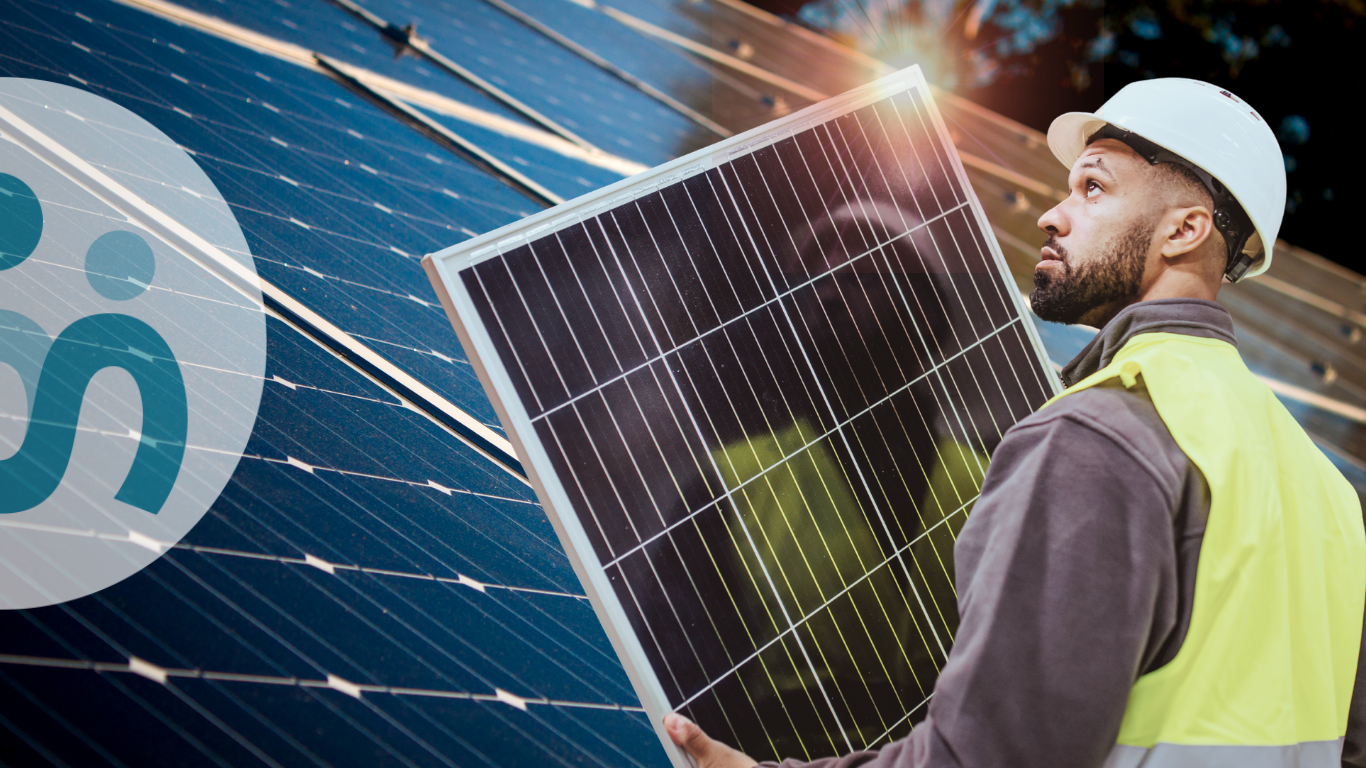
Bright Futures: Powering Your Career as a Solar PV Electrician in South Africa
As South Africa charts its course toward a cleaner, more secure energy future, the solar industry is emerging as one of its fastest-growing sectors.
For those skilled in electrical work and driven by a vision of sustainable power, becoming a Solar PV Electrician offers more than a job — it offers meaningful purpose, stability, and a stake in the country’s renewable transition.

Why Solar? Why Now?
Recurring load-shedding and pressure on Eskom’s grid have accelerated investment in rooftop and utility-aligned solar systems. Businesses, municipalities, and households are increasingly turning to solar photovoltaics (PV) and battery-storage solutions to stabilise supply, reduce energy costs, and improve sustainability profiles. According to SAPVIA’s recent industry data, solar PV deployment—particularly in small-scale embedded generation and commercial sectors—continues to grow steadily.
That momentum creates demand not just for panels and inverters, but for competent, certified installers. Solar PV electricians are becoming essential enablers in South Africa’s energy transformation.

Foundation: Become a Qualified Electrician
Before specialising in solar, you need a solid electrical foundation. In South Africa, this typically means completing an artisan-level qualification (such as the Occupational Certificate for Electrician, or a trade test via QCTO/SETA channels), followed by registration as an installation electrician.
This training covers single-phase and three-phase installations, safety practices, electrical theory, and hands-on experience. It forms the basis for compliance with national regulations under the Electrical Installation Regulations and ensures you can issue Certificates of Compliance (COCs) for electrical installations.
Specialise with Solar PV Training
Once you hold your electrical qualification, the next step is to specialise in solar PV. South Africa recognises two leading industry-backed credentials: the PV GreenCard and the P4 Accreditation programme.
The PV GreenCard
The PV GreenCard, administered by SAPVIA, serves as both a quality-assurance scheme and a commissioning report that documents system design, equipment, and installation quality. It’s an industry credential that sets you apart as a professional who meets the highest standards of safety and performance.
Training courses such as SuperSolarSchool are endorsed by SAPVIA and prepare candidates for the PV GreenCard assessment. The evaluation combines theoretical exams and hands-on installation tests, ensuring graduates are job-ready and compliant with industry standards.
The P4 Accreditation
An alternative or complementary route is the P4 Accreditation, administered by the Association for Renewable Energy Practitioners (AREP) and facilitated through PQRS. The P4 system offers Level 1 and Level 2 practitioner assessments that focus on solar PV design, installation, and compliance.
P4 accreditation is recognised by many municipalities and financial institutions as a benchmark for quality assurance and risk management in solar projects. Accredited training providers such as PQRS and Solar-Hub deliver courses aligned with these assessments, giving professionals an additional pathway to credibility in the marketplace.
Holding both a PV GreenCard and P4 accreditation signals technical competence, regulatory compliance, and dedication to excellence — qualities that stand out in South Africa’s growing solar workforce.

Standards, Safety, and Compliance
In the solar industry, compliance is non-negotiable. To operate safely and legally, electricians must:
- Follow South African National Standards (SANS) for electrical and PV installations.
- Use equipment that meets product standards recognised by the SABS, SANS, or NRCS, where applicable.
- Understand local and national regulatory frameworks, including grid-connection and municipal approval processes.
- Stay current with amendments to the Electrical Installation Regulations and the Occupational Health & Safety Act.
Adhering to these standards builds your professional credibility, enhances client trust, and ensures your installations deliver reliable performance for years to come.
Hands-On Experience Counts
Practical experience is the true measure of readiness. Employers and clients value electricians who can install, wire, and commission solar systems with precision. This includes connecting inverters, configuring battery storage, and troubleshooting on-site challenges. Having one to three years of post-qualification experience will greatly enhance your employability in this rapidly evolving sector.

Stay Connected, Stay Ahead
The solar industry evolves quickly—new technologies, updated regulations, and emerging business opportunities appear regularly.
Staying connected to professional networks such as SAPVIA, attending workshops, and participating in continuous professional development helps you stay informed and competitive.
A Career with Impact
Whether you’re starting out, retraining, or seeking a career with long-term growth potential, becoming a Solar PV Electrician offers both purpose and opportunity. The field combines technical skill with environmental responsibility, providing stable employment and the satisfaction of contributing to South Africa’s energy resilience.
Bilnor Staffing Solutions connects skilled professionals with companies driving South Africa’s renewable future. The team champions those who bring energy, precision, and passion to their work—because powering progress begins with people.


